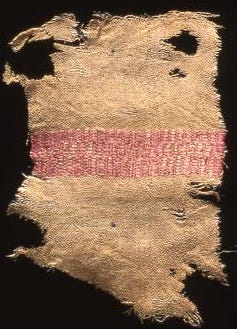“And God did extraordinary miracles by the hands of Paul,
so that handkerchiefs or aprons were carried away from his body to the sick,
and diseases left them and the evil spirits came out of them.”
Acts 19:12.
The veneration of relics was one of the practices targeted by the Reformation, and in the context of the 16th century, there was a reasonable cause for this. The trade in illicit and fake relics was a scandal of the medieval Church, and the practice could tend towards superstition in the hands of some. But the abiding error of the self-styled reformers was to strike not at an abuse, but at the entire theology underpinning an ancient and venerable practice of the church.
The notion that items connected to the holy could be conduits of power had deep roots in the faith, right back to scripture. The remains of martyrs were collected and venerated from the earliest days, with The Martyrdom of Polycarp attesting to the practice by 150 AD. We also have this startling passage from Acts 19:12, which is nothing less than Biblical witness to the power of a second class relic to work miracles.
Keep reading with a 7-day free trial
Subscribe to Weird Catholic to keep reading this post and get 7 days of free access to the full post archives.





